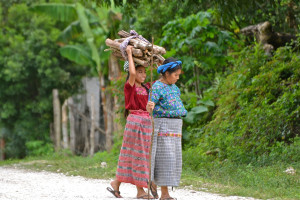What is the challenge?
The Agriculture, Forestry, and Other Land Use Change (AFOLU) sectors are important for the economies of many Latin American countries, especially for providing employment and income for poor rural people. Furthermore, the AFOLU sectors are important for their mitigation potential, as they are leading sources of greenhouse gas emissions in a number of countries. What has been missing is a thorough study of the impact of climate change on the sectors, weighing climate-smart policy options that might be used to both help farmers adapt and be more resilient while mitigating climate change.
Key research questions
- What will the climate change impacts be on the important agricultural commodities in each country in the study, and what are the best policies to help compensate for those impacts?
- Looking at the bigger picture that includes changes in global population, income, tastes, and technology, how will domestic agriculture likely change in response to these forces? Can these responses be shaped by various policies to lead to an even better future outcome for the country?
Basic information about the activity
The plan is to conduct five research reports. The ambition is to turn these chapters into a book. The reports will cover climate change and AFOLU in Colombia, Peru, Guatemala, Honduras, Nicaragua, and El Salvador, Mexico, and Brazil. The reports will use various sources for background information on the economy, poverty, and the agricultural sector. The reports will include future assumptions about the countries' economy, demographics, and emissions included in the Intergovernmental Panel on Climate Change (IPCC) AR5 report, specifically under the Shared Socio-Economic Pathways (SSPs), Representative Concentration Pathways (RCPs), and General Circulation Models (GCMs). -- as a basis for the models that provide with results for the backbone of the reports.
In regard to direct impact of climate change on crops, we will use results from the Agricultural Model Intercomparison and Improvement Project (AgMIP) analysis. To consider the fuller implications of climate change, that include economic, demographic, and technological change, we will present results from the International Model for Policy Analysis of Agricultural Commodities and Trade (IMPACT), a global partial equilibrium model for the food and agriculture sectors, which have incorporated Decision Support System for Agrotechnology Transfer (DSSAT) crop model results done by International Food Policy Research Institute (IFPRI). Finally, working with the Markets, Trade and Institutions Division (MTID) at IFPRI, we will use the Modelling International Relationships in Applied General Equilibrium (MIRAGE) computable general equilibrium model to consider regional effects and policy options.
Collaborators
Coming.
Outputs
Coming.
Other links
None
Contact
- Timothy Thomas, Research Fellow II, Environment and Production Technology Division (Tim.Thomas@cgiar.org)
- David Laborde, Senior Research Fellow, Markets, Trade and Institutions Division (D.Laborde@cgiar.org)
This project is led by International Food Policy Research Institute (IFPRI) and funded by the CGIAR Research Program on Climate Change, Agriculture and Food Security (CCAFS)


Leave a Reply